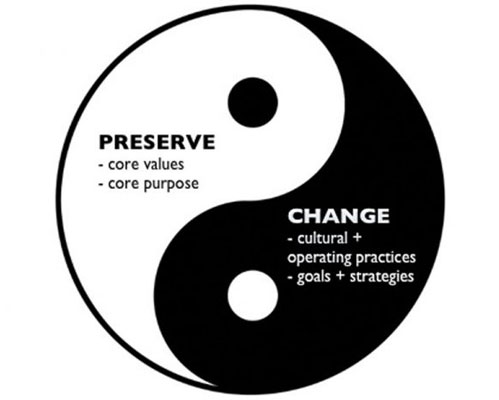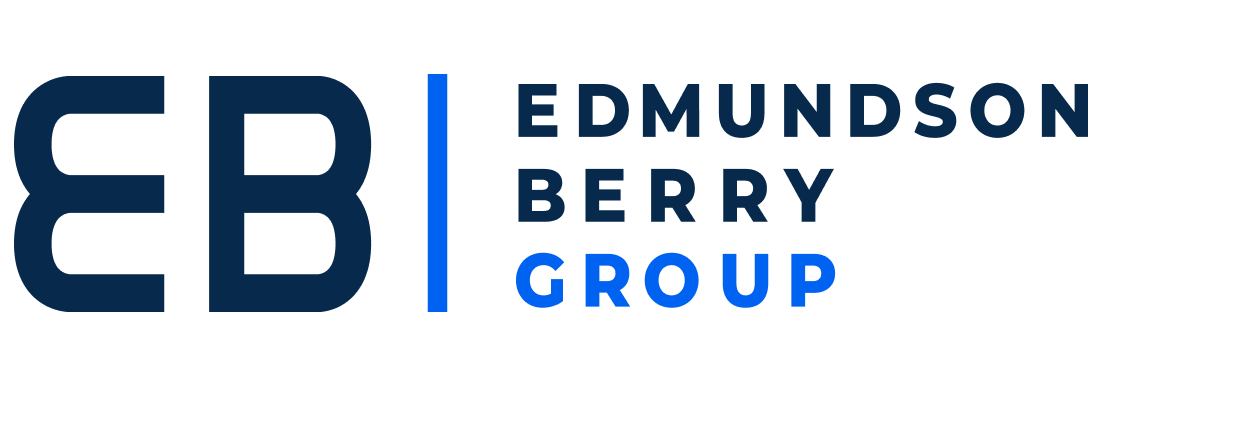- July 8, 2017
- Posted by: jsagar@marketingmo.com
- Category: Leadership and People

The recent scandal at Volkswagen demonstrates how a lack of values can severely damage or potentially destroy a company. Even a global market leader.
Other companies that have collapsed from a lack of values – Enron, WorldCom, Stanford Financial – did so because their values, vision, mission and purpose were not authentic; they were simply statements written on a piece of paper that were neither aligned within the company nor held by their people.
This brings up an important point that many of you have asked about over the past few years. Of these essential foundational elements of a business, what changes, and what stays the same?
As Jim Collins says, it’s a matter of distinguishing timeless core values from operating practices and cultural norms. Timeless core values never change. Purpose never changes. Operating practices and cultural norms never stop changing. Vision (what it will be like when we reach our ultimate goal or BHAG) and BHAGs (what is our intent and focus to achieve in the next 10 years) change rarely, every 10 to 20 years.
From Collins:
A timeless core value in an academic institution, for instance, is freedom of intellectual inquiry. A practice adopted to support that core value is academic tenure. But there’s a lot of evidence to suggest that the practice of tenure probably needs to be changed or discarded because it no longer serves the purposes for which it was created.
But if I suggest that academic institutions should seriously think about changing the tenure system, the average academic is likely to say, “Never! You’re violating our core values.” But that protest arises from a failure to distinguish between values and practices.
The core value is freedom of inquiry; tenure is a practice.
Frequently institutions cling doggedly to practices that are in truth nothing more than familiar habits. As a result, they fail to change things that ought to change. And by defending outmoded practices under the banner of core values, they might actually be betraying their true core values.
Here are the key points to remember about core values:
- Your company’s values and beliefs are a guiding set of principles that define your existence and guide your organization. They’re the essential tenets of your organization which require no external justification, are valued by your people, and can serve as a compass for strategic decisions.
- Your beliefs help to define what you stand for. They’re independent of the current business environment and should be able to stand the test of time, without change.
- These beliefs will help you focus in on our ultimate goal of this exercise – to define your purpose. To identify your beliefs, think about the values that are truly “central” to your organization.
Here are some examples of core values:
The Walt Disney Company
• No cynicism
• Nurturing and promulgation of “wholesome American values”
• Creativity, dreams, and imagination
• Fanatical attention to consistency and detail
• Preservation and control of the Disney magic
Nordstrom
• Service to the customer above all else
• Hard work and individual productivity
• Never being satisfied
• Excellence in reputation; being part of something special
Merck
• Corporate social responsibility
• Unequivocal excellence in all aspects of the company
• Science-based innovation
• Honesty and integrity
• Profit, but profit from work that benefits humanity
All of you know that I strongly encourage you to discover your values and align them to your purpose. Embed them into the fabric of your operations; do not allow people or practices that don’t subscribe to your values.
If you’re thinking about yours now, and wondering if they’re truly authentic, consider if they’re truly “core” to your organization, ask yourself the following question:
If the market penalized us for holding this belief, would we keep it?
If the answer is no, then it’s not a core belief.




